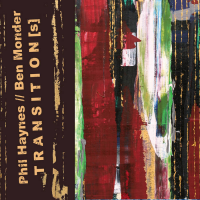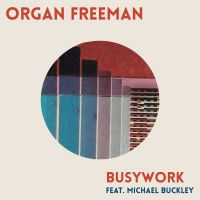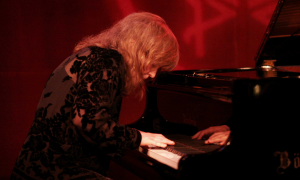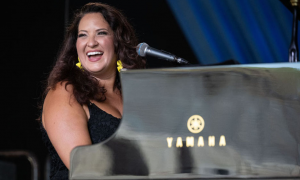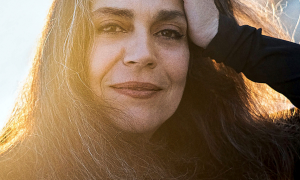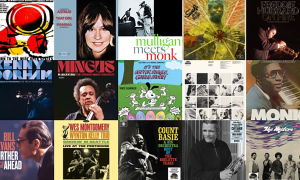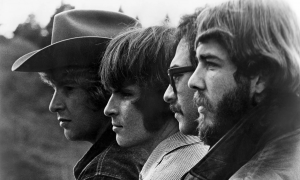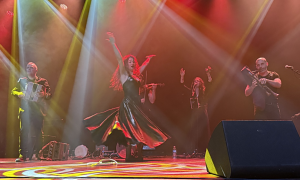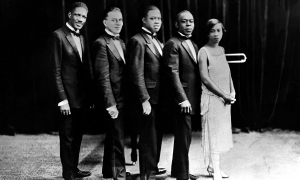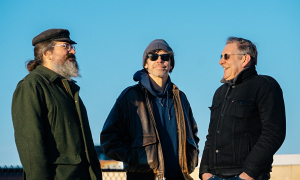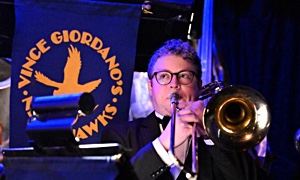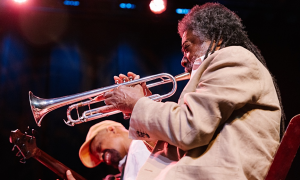Home » Jazz Articles » Interview » Marilyn Crispell: Fearless, Deeply Sensitive and Shaping...
Marilyn Crispell: Fearless, Deeply Sensitive and Shaping the Moment
MC: That would be very hard to say. Of course, the three on ECM—Amaryllis and the others. There is a Leo records release, Live in Zurich, with Reggie Workman and Paul Motian. I'm actually singing sort of a chant at the beginning of that one for about 30 seconds, the only time I ever sang on a recording. But I did sing once in a concert in Vancouver. I tried to sing the Ornette Coleman song, "What Reason Could I Give?" to live, only that I love you. But I was nervous and botched it up so terribly. It was so embarrassing. And afterwards, some of my good friends who were journalists were sitting in the front row and they came up to me and said, "Don't give up your day gig; don't stop playing piano."
AAJ: I've watched some videos of you playing live shows. You look as if you're in a vacuum, completely absorbed. Your face is covered by your hair. Perhaps it gets people to focus solely on the music rather than your emotions or expressions.
MC: I like to think of myself as disappearing when I play a concert. The music suffers, I think, if you're distracted by something in the audience or backstage. It's very hard to do when there is noise or bright lights. Sometimes it's easier than other times. But you also have to get a sense of the atmosphere in the room. Is the audience ready to hear music or are they moving about and having conversations?
AAJ: What would you say are your most memorable solo albums?
MC: That one For Coltrane I like a lot. It was on Leo Records, too, and came out around 1992 maybe. I forget, but it was recorded at Logan Hall in London several years before being released on Leo. Vignettes was on ECM and it consisted of many shorter pieces. I really liked Nordic music and there were pieces by the bassist, Anders Jormin, and the Norwegian trumpeter, Arve Henriksen wrote "Stilleweg," which means quiet way or quiet road. I recorded a trio record with Anders and drummer Raymond Strid on Alice Records, which doesn't exist anymore. It was called Spring Tour and I liked it very much.
AAJ: What would say are the differences between Nordic music and Western music?
MC: I find it different in that Nordic music has more space. I think of those wide expanses of ice and snow, the Northern Lights and the long cold winters with candlelight inside. To me at the moment. I'm also playing in a trio with a woman. She's a drummer/composer whose name is Michala Østergaard-Nielsen, and the bassist is Thommy Andersson. She's Danish. He's Swedish, but he's lived in Denmark for a long time. Her music is spacious, very spare and beautiful. We made a recording called The Cave (ILK, 2025).
AAJ: You have spent quite some time in Scandinavia. Is that just for the music or do you like the region?
MC: Scandinavia is one of my favorite places in the world. I once thought of moving there, but it would have been so involved with a million details to manage. I like the Northern Lights, many things except for the black flies that come in the summer and attack you. When I was playing in Finland one time with some Finnish musicians, they brought me a face net to cover my head. They said, you might not need it, but if the black flies come, you'll be glad to have it. Luckily, I didn't need it.
AAJ: I hear you are an avid reader. What literature interests you lately?
MC: Well, I am into Buddhist philosophy and practice, so I've read a lot of that, like Pema Chödrön, Chögyam Trungpa, some of the great teachers.
AAJ: You also have mentioned Qi Gong practice. I've practiced that for decades coming from the Chen perspective, but there are so many beautiful styles.
MC: I studied with a woman up here for a couple of years. I don't know what style it was. The name of her teacher was TK Shih. He was a healer and a Qi Gong master. Unfortunately, she passed away too young from lung cancer. She had asked me to take over the class to finish out the semester, and I did, but then I just didn't have the heart to continue, even on my own. It's very much hard to explain.
AAJ: Before when we were talking about the trio albums on ECM. Nothing Ever Was, Anyway had the music of Annette Peacock. How did you come to meet her?
MC: I had heard that she had moved to this area, and I looked up her number and called her. I had transcribed a piece of hers called "Gesture Without Plot," and I wanted to play it for her and see if I had done it right, which it turned out I had. Then we just started hanging out a little bit and became friends. One night, I had a flash like a bolt of lightning and blurted out, "Annette, I'd like to make a record of your music."
AAJ: We've talked about so many things. You've lived—are living—a fascinating life. You've played with dozens of jazz cats all over the world. I have been wondering about what your cats think of your music. Do they congregate in the room when you play the piano?
MC: Actually, they don't like it because if I'm practicing a lot that means I'm getting ready to go on tour. They roll over and cry and try to distract me. If I sing, they don't like that either. I don't know what it is. But Doug James the drummer on Your Ivory Voice Sings (Leo Records, 1985), which came from a line of a poem of mine about Cecil Taylor, had a cat named Duke after Duke Ellington. When he would play Ellington, the cat would come in and listen. If he was playing something else that was not great, the cat would walk out of the room. The cat was discerning. That's how it is with music. You have to know what's good and what's not.
Tags
Interview
Marilyn Crispell
dean nardi
anthony braxton
Mark Dresser
Gerry Hemmingway
joe lovano
Carmen Castaldi
Trio Tapestry
Anders Jormin
Raymond Strid
Gary Peacock
Paul Motian
Harvey Sorgen
Joe Fonda
Yuma Uesaka
Joseph Jarman
Thommy Andersen
Michala Østergaard-Nielsen
David Rothenberg
Iva Bittova
Benedicte Maursethe
Manfred Eichier
Mark Elias
Annette Peacock
Mitchell Weiss
McCoy Tyner
Keith Jarrett
Charlie Mariano
John Cage
Christian Wolff
Ursula Oppens
Frederick Chesky
Charles Ives
Ahmadu Jarr
Reggie Workman
barry guy
Barry Guy New Orchestra
Paul Lytton
Cecil Taylor
Ornette Coleman
Arve Henriksen
Thommy Andersson
Raymond MacDonald
George Burt
Doug James
Anthony Davis
Jeff Henderson
Richard Aunns
Tisziji Munoz
Pharaoh Sanders
Rashied Ali
Don Pate
Henry Kaiser
Lukas Ligeti
Angelica Sanchez
Tyshawn Sorey
Adam Shead
Jason Stein
Damon Smith
duke ellington
Comments
PREVIOUS / NEXT
Marilyn Crispell Concerts
Support All About Jazz
 All About Jazz has been a pillar of jazz since 1995, championing it as an art form and, more importantly, supporting the musicians who make it. Our enduring commitment has made "AAJ" one of the most culturally important websites of its kind, read by hundreds of thousands of fans, musicians and industry figures every month.
All About Jazz has been a pillar of jazz since 1995, championing it as an art form and, more importantly, supporting the musicians who make it. Our enduring commitment has made "AAJ" one of the most culturally important websites of its kind, read by hundreds of thousands of fans, musicians and industry figures every month.



